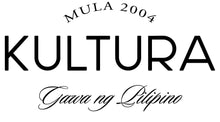Choose Healthy with Locally-Grown Philippine Teas

For centuries, teas have been used to heal and ease a multitude of illnesses. Today, tea’s popularity has continued to grow; it remains both a delicious and convenient way to nourish one’s body. Enjoy health and wellness everyday - all through a simple, hearty cup of tea. Here, we share the unique, immune-boosting benefits of Kultura’s carefully curated selection of teas, many of which are derived from native plants. In addition to serving as all-natural remedies, each of our teas are locally sourced and help support the livelihood of Filipino farmers.

Bignay
Also known internationally as Queensland cherry, bignay fruit is indigenous to numerous countries in Southeast Asia as well as Australia. The fruit typically develops in long clusters, similar to grapes, and may be yellow, red, or purple in color.
Despite its numerous health benefits, not many are familiar with bignay. Its acidic yet sweet flavor when ripe makes it ideal for red wine, and a healthy yet delicious option for juice or tea. Bignay contains vitamins A, C, E and B1, and is a natural source of antioxidants. As such, bignay is thought to lower cholesterol, help improve the immune system and promote a healthy heart. With its antihyperglycemic properties, the fruit has been found to assist in decreasing blood sugar and may help prevent diabetes. Boost health with MSC’s Bignay tea.

Malunggay
Moringa or malunggay is a tree native to the Philippines, with leaves that are commonly added to Pinoy dishes. The grassy aroma of malunggay makes it a popular flavor enhancer for soup, though its leaves can also be dried and used to make unique tasting tea.
According to Moringa & More, malunggay boasts countless health benefits, containing over 90 nutrients and 46 antioxidants. The plant offers 7x the amount of vitamin C in oranges, 17x the calcium and 2x the protein in milk and 25x the iron in spinach. Lab studies suggest that moringa can reduce inflammation and regulate blood glucose levels, potentially helping to aid diabetes. In addition, moringa extracts have been found to improve digestive ulcers.
For those looking to boost health with the powerhouse plant, try Moringa & More’s Moringa Instant Herbal Tea, made from organic malunggay. Or, for a slightly sweeter taste, the company also carries Instant Flavored Tea, which combines the earthy notes of malunggay with natural fruit extracts.

Ginger
Fragrant, spicy and soothing, ginger has long been labeled a natural remedy in places all over the globe. For centuries, the root has been used as an ingredient in food and drink to treat disorders such as arthritis, stomach pains, diabetes and menstrual irregularities. Scientific research supports ginger’s ability to aid nausea and motion sickness. Some evidence suggests ginger may possess anti-inflammatory properties and help reduce hypertension.
As ginger thrives in warm, humid climates, the Philippines is able to grow several varieties of the root, including Native, Red native, Imugan and Hawaiian. Both Native and Red Native Filipino ginger is generally quite fibrous, and is the most potent of all types.
Salabat is one of our most popular Filipino teas, traditionally made from boiling ginger. For a quicker, more efficient way of trying this local beverage, opt for MSC’s powder form salabat. Simply dissolve one tablespoon of the powder in a cup of hot water and mix well. Since it’s caffeine-free, salabat can be taken in the morning, throughout the day or in the evening.

Ashitaba
Dubbed the “longevity herb” for its various medicinal properties, the Ashitaba plant originates from Hachijo, Japan. Its leaves carry a strong, slightly bitter, earthy taste and are often used to make tea. Though Ashitaba’s flavor has been likened to black or green tea, unlike these it is a non-caffeinated alternative.
Ashitaba is now grown locally, ensuring freshness and allowing locals to appreciate the herb’s numerous healing benefits. The plant has been linked to improving conditions such as diabetes, obesity and heart disease. For those interested, Adelle Ashitaba offers Ashitaba in tea bag form.
Guyabano
Guyabano or soursop is a small tropical fruit native to the Philippines. It is most commonly grown in Western Visayas and Central Luzon. The fruit is said to have a similar aroma and pulp to pineapple, but is described to taste like a mix of strawberry and apple, with hints of citrus.
Traditionally, guyabano was consumed by diabetics to help lower blood sugar. The fruit is said to lower fever and blood pressure, while relieving inflammation and asthma. Additionally, guyabano is high in vitamins C, B1, B2 and flavonoids, and is often used by holistic health practitioners.
MSC carries a blend of guyabano and mangosteen tea. Known to taste like a mix of lychee, peach and pineapple, mangosteen fruit perfectly complements the natural flavor of guyabano.

Tanglad
Locally known as tanglad, lemongrass carries a mildly sweet, lemony taste, but without the tangy aftertaste of citrus fruit.
Used in several Asian cuisines, lemongrass possesses a myriad of health benefits. It has been used in Ayurvedic medicine to relieve digestive issues, inflammation, fevers and joint pain. Lemongrass leaves contain various antioxidants that help support one’s kidney and liver, while preventing coronary illnesses by removing toxins. In tea form, it has been shown to boost production of red blood cells, thus improving anemia.
Try Moringa & More’s Lemongrass Herbal Tea warmed or over ice for a refreshing drink during the day or night, since it’s caffeine-free. Or, enjoy Healthy Pinoy’s Lemongrass Tea, which pairs lemongrass, malunggay flakes and stevia - a healthier sugar substitute - to create a crisp, earthy blend.
Kultura carries a wide variety of teas to suit every taste. Let us help you create daily wellness rituals that soothe your mind and body, starting with a simple cup of tea.

